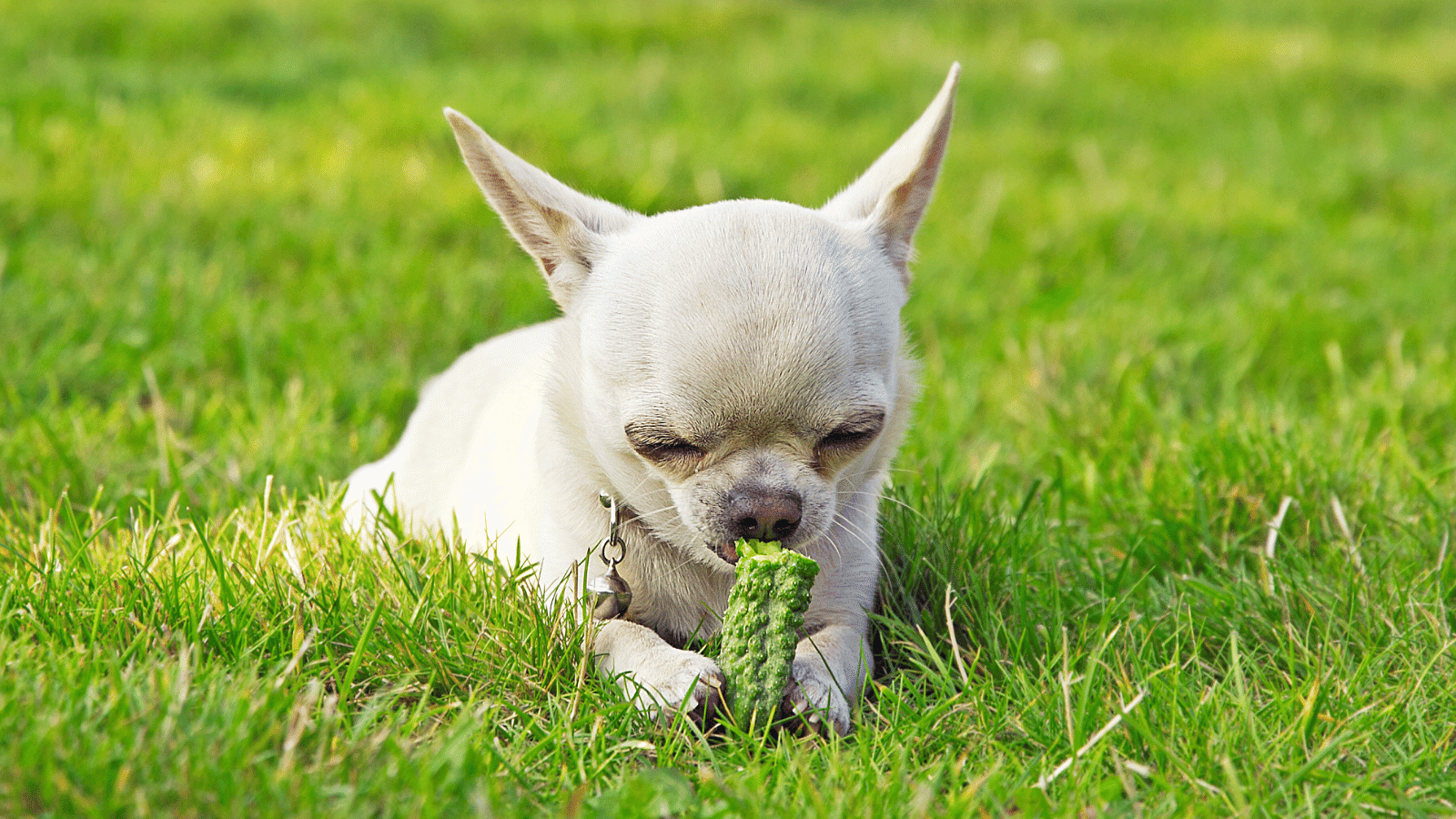Have you ever seen your furry friend munching on a patch of grass during your daily walks and wondered, “Why do dogs eat grass?” This behavior is a common subject of fascination and sometimes a concern for many dog owners. While it’s a widespread phenomenon across the dog world, the reasons behind it are not always crystal clear.
In this blog post, we’ll dig into the roots of this grass-eating habit, examining everything from natural instincts to health implications. Whether you’re a seasoned pet owner or a new dog enthusiast, understanding why dogs engage in this behavior can help you ensure the well-being of your four-legged companion.

Possible Explanations To Why Do Dogs Eat Grass
Natural Instinct
The grass-eating habit in dogs may be linked to their ancestors. Wolves and wild canines often ingested plant material as part of their diet, especially when prey was scarce. While dogs have evolved to become domesticated pets, this natural foraging instinct can still manifest as a grass-eating habit.
Nutritional Deficiencies
Some experts believe that dogs may turn to grass as a source of certain nutrients or fiber that could be missing from their regular diet. This behavior might signal that it’s time to reevaluate what you’re feeding your pup to ensure they’re getting all the necessary vitamins and minerals.
Digestive Issues
Grass eating might also be related to the digestive discomfort some dogs feel. It’s hypothesized that the roughage from grass can induce vomiting, providing relief from nausea. However, if your dog frequently eats grass and seems ill, please consult your veterinarian.
Behavioral Reasons
Boredom or anxiety may drive some dogs to eat grass. It can be a way for them to pass time or relieve stress, just as some people might bite their nails or fidget.
Taste and Texture Preferences
Simply put, some dogs may just like the taste or texture of grass. If it becomes a snack of choice, there may be no deeper reason behind it than personal preference.
Research and Expert Opinions
Numerous studies have been conducted on canine behavior to understand why dogs eat grass. While results can vary, there is no definitive answer. Veterinarians and animal behaviorists often offer insights based on observation and clinical experience, suggesting that as long as a dog is healthy and well-fed, occasional grass eating is generally not a cause for alarm.
Health Implications Of Dogs Eating Grass
Is it Safe for Dogs to Eat Grass?
In general, grass is not harmful to dogs. However, it is crucial to ensure that the grass they consume hasn’t been treated with pesticides, fertilizers, or other chemicals that can be toxic.
Risks and Potential Problems
While most dogs can handle small amounts of grass in their diet without issues, ingesting too much can lead to problems. Large quantities of grass can cause intestinal blockages, particularly in smaller dogs, and frequent vomiting can indicate a more serious underlying condition.
When to be Concerned
If grass eating is accompanied by signs of illness, such as vomiting, diarrhea, loss of appetite, or lethargy, it’s time to consult your vet.
Tips for Managing Grass Eating Behavior
Provide a Balanced Diet
Ensure your dog is receiving a well-balanced diet that meets all their nutritional needs. Consult with your vet for diet recommendations that address your pet’s specific requirements.
Address Underlying Health Issues
If you suspect that your dog’s grass eating is related to a health problem, seek veterinary attention to address the issue directly.
Provide Alternative Chewing Options
Offer your dog a variety of appropriate chew toys or healthy dog treats to discourage them from turning to grass.
Seek Professional Advice if Needed
If you’re unsure why your dog is eating grass or if you have concerns about their health, professional advice is just a vet visit away.
Conclusion
Understanding the various reasons why dogs eat grass can help pet owners provide better care and attention to their furry friends. While it’s often harmless, maintaining awareness of your dog’s habits is crucial for their overall health and happiness. Remember, if in doubt, always consult with a professional who can offer guidance tailored to your dog’s unique needs.
Key Takeaways
- Grass eating in dogs can be a natural instinct, a sign of nutritional deficiencies, or a method of self-medication for digestive issues.
- It’s also possible that dogs simply enjoy the sensation or are seeking behavioral stimulation.
- Regular monitoring of your dog’s diet and behavior is essential for understanding this grass-eating habit.
- Always consult with your veterinarian if you have concerns about your dog’s health or behavior.
By keeping these points in mind and maintaining a watchful eye on our canine companions, we can ensure that their curious eating habits don’t turn into a health concern. After all, a little grass might just be part of being a dog, but their well-being is in our hands.
